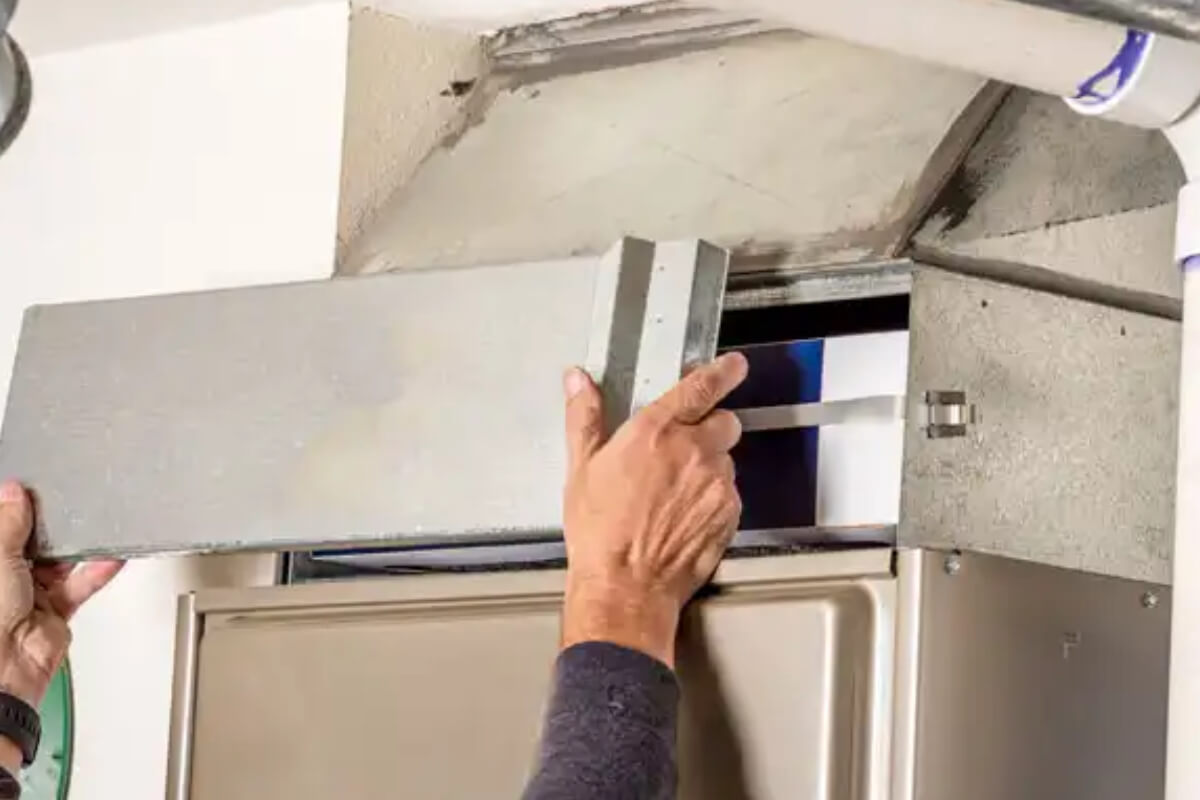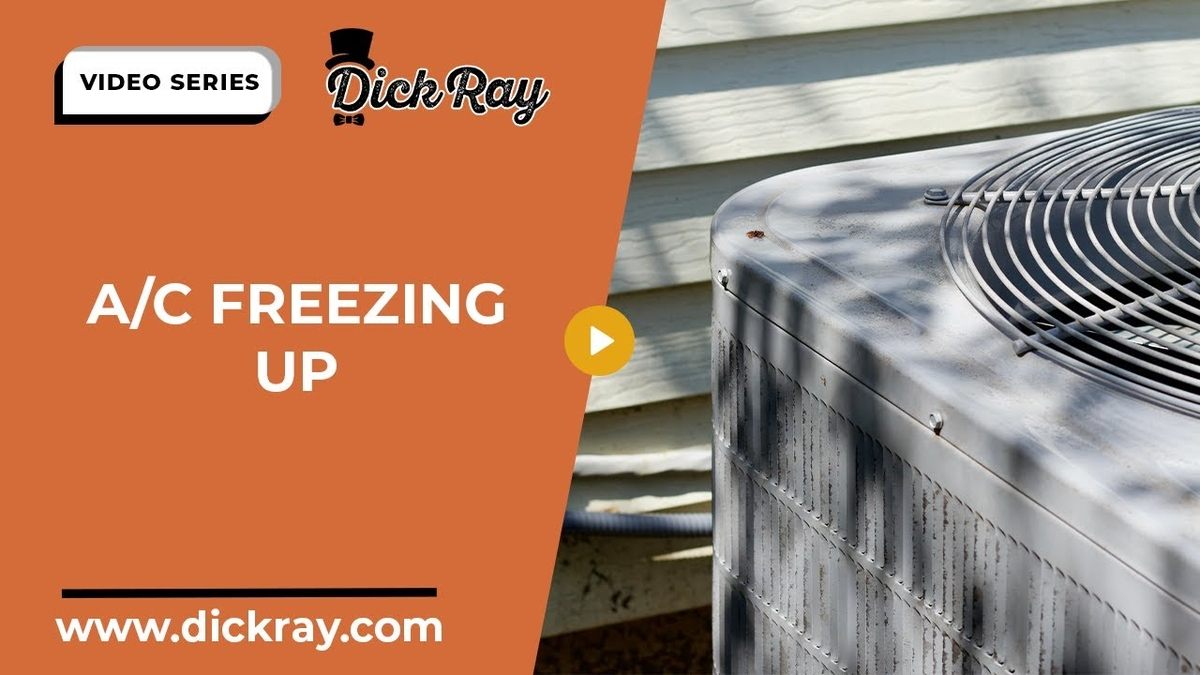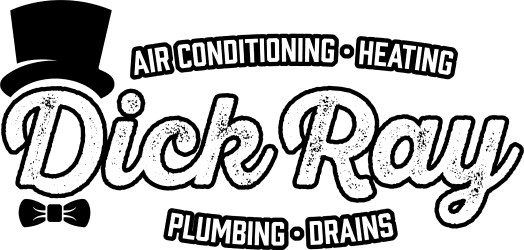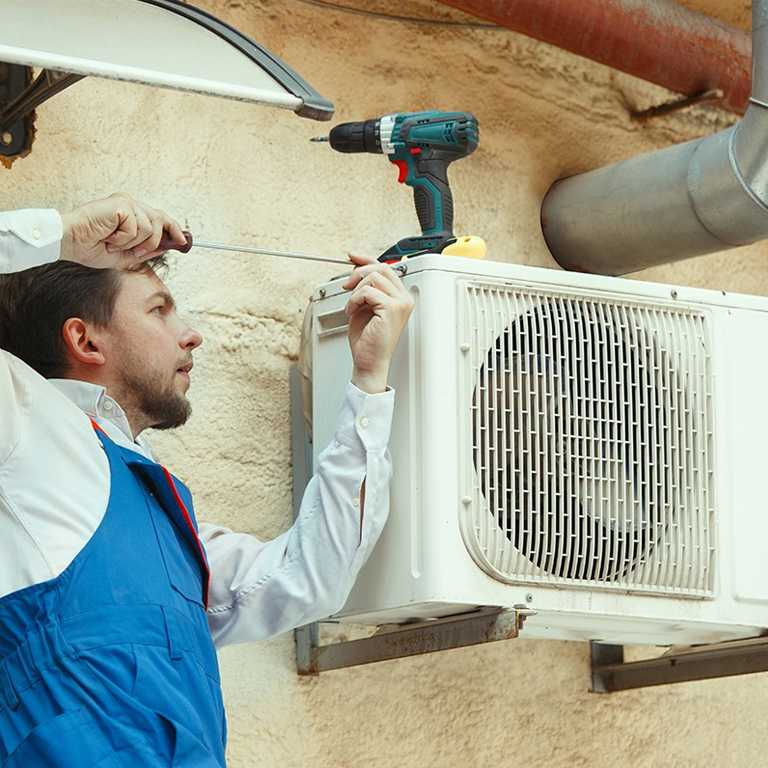If you’re wondering why your energy bills are so high, the answer could have to do with wasted energy. Most households tend to experience energy losses from the same common areas, but the good news is that anyone can start saving energy by following our tips for energy efficiency.
Top Areas of Household Energy Consumption
To find ways you may be wasting energy in your home, it’s helpful to know what areas of our homes are responsible for using the most energy. Of course, these will differ some from home to home, but surveys on electricity use give us insight into how the average household uses their energy. Let’s take a look at the top energy consumers in most homes, according to data provided by the U.S. Energy Information Administration.
1. Space Heating and Air Conditioning
Right around half of an average household’s energy consumption goes to heating and cooling your home. Heating and air conditioning needs tend to vary dramatically based on where you live and the time of year. Still, no matter where you live, you are likely heating or cooling your home for much of the year to maintain a comfortable indoor temperature. We love our HVAC systems, but they do tend to use a lot of energy. Note that space heating tends to be responsible for far more energy consumption than air conditioning.
2. Water Heating
The next largest consumer of energy for most homes is water heating. The average family uses about 64 gallons of water a day, and much of the water we use is hot. Your water heater warms up the water you use for your showers, dishwasher, washing machine and more. In 2015, water heaters were responsible for 19% of energy use in the average home. While we use water heaters throughout the year, they may use a bit more energy to heat water during the winter, when the water coming in is colder than usual.
3. Lighting
Lighting is another significant source of energy consumption, though perhaps not as much as some homeowners may think. Lighting is responsible for about 5% of total energy consumption in the average home, and 10% of electricity use. That’s quite a bit less than heating and water heating, but is still a notable chunk when compared to other uses of energy at home.
4. Appliances
In addition to space heating, cooling, water heating and lighting, much of the energy we use in our homes goes to appliances. Some of the appliances that use the most electricity include refrigerators, televisions and other electronic devices and clothes dryers. Other appliances like dishwashers, ceiling fans, microwaves and more also contribute to home energy use.
Why Is My Energy Bill So High?
Most of us have an idea of how much energy we’re using when we get our energy bills in the mail. If you’re wondering why your bill seems so high, the answer is probably due to a combination of reasons. The following five reasons are common causes of high energy bills.
- Your utility company has increased rates: One reason your energy bill may seem high is that your utility company has raised their rates. Unfortunately, there’s not much you can do about this scenario, but it can prompt you to find ways to reduce your energy consumption.
- You’re subject to a time-of-use plan: Some utility companies use a time-of-use model, where energy costs are higher during peak times of day. If you tend to wash dishes, do laundry, take showers and more during these peak times, your bill will be higher.
- You use your HVAC system excessively: We all like to be comfortable in our homes, but depending on where you live, that may mean using your air conditioning or heat more than you should at times. Your bill will be especially high if you leave your heat on full blast when you’re away from home.
- Your appliances are outdated: Older appliances tend to use more energy, while newer models have an energy-efficient design. If you’re replacing old appliances, look for Energy Star-certified appliances.
- Your appliances stay plugged in: Did you know plugged-in appliances continue to use energy even when they are turned off? These “phantom” energy losses will add up to a higher energy bill.
25 Tips for Saving Energy
Now, let’s look at some ways you can use less energy and start seeing lower energy bills. You may not be able to turn your home into a net-zero house, but you can make real changes with these 25 tips to minimize energy loss in the home.
- Enhance your home’s insulation: When your home is well-insulated, your HVAC system doesn’t have to work as hard against the outdoor temperature to keep your home comfortable. There are many ways to better insulate your home, including adding insulation to your attic, installing storm doors or upgrading your windows.
- Upgrade to more efficient HVAC systems: Since the bulk of energy costs go to your HVAC system, and heat in particular, you can save in some cases by upgrading your existing home heating system to a more energy-efficient option. Electric heat pumps tend to be more efficient than gas furnaces.
- Replace your air filter regularly: You don’t want your home’s HVAC system to work harder than it has to, so make sure you regularly clean or replace air filters. When your air conditioner is operating with a clean filter, its energy consumption will be 5% to 15% lower than with a clogged, dirty filter.
- Schedule a regular HVAC tune-up: Another way to ensure your HVAC system is working at maximum efficiency is to schedule an annual inspection from a professional who can check to ensure there are no problems inhibiting your HVAC system from functioning at its best and to prevent any minor issues from compounding.
- Insulate ductwork: Wrapping your ductwork in insulation can prevent hot air from escaping as it travels to the vents throughout your home. According to the Department of Energy, this leaked air can cost you hundreds of dollars every year, but insulating your ducts can make a significant difference.
- Install an attic fan: If you’ve ever climbed up into your attic during the summer and noticed how stifling the heat up there is, consider installing an attic fan. An attic fan circulates air from outside to keep the attic and, in turn, your home, cooler. It takes some pressure off your air conditioner.
- Circulate air with ceiling fans: The Department of Energy reports that using ceiling fans to circulate air in your home can allow you to raise your thermostat setting in the summer by 4 degrees Fahrenheit and feel just as comfortable. A difference in 4 degrees is significant when it comes to cooling costs.
- Adjust your thermostat: Most of us have strong preferences when it comes to our preferred temperature inside, but even adjusting your thermostat by a single degree can save you money. So, when you’re feeling tempted to raise the temperature in the winter, put on extra layers instead. In the summer, use fans to help keep cool.
- Use a programmable thermostat: A programmable thermostat allows you to schedule changes. You can set your thermostat to raise or lower the temperature so it’s not working as hard while you’re at work, for instance, and return to normal in time for you to come home. Note that the Department of Energy does not recommend programmable thermostats for heat pumps.
- Lower your water heater setting: Many water heaters have a default setting to heat water to 140 degrees. For most households, this scalding temperature is hotter than necessary. By lowering your water heater thermostat to 120 degrees, you can save hundreds of dollars every year and likely never notice any difference.
- Install a tankless water heater: Both traditional and tankless water heaters are valid options, so every homeowner should compare the pros and cons to make the right choice. When you’re going for energy efficiency, though, installing a tankless heater is the best choice, since it will help prevent standby losses.
- Clean out your water heater: Limescale and other mineral deposits can build up inside a hot water tank over time and reduce the heater’s efficiency. To keep your water heater working at its best, flush and clean out the tank periodically. If you have hard water, you may have to clean out your tank more often.
- Insulate hot water pipes: As hot water travels from your water heater to your shower and faucets, the water tends to cool. To prevent this waste, you can insulate your hot water pipes. By insulating the pipe coming out of and into your water heater, you can enjoy water at the temperature you want without having to raise the faucet handle as far.
- Shorten your showers: A simple way to cut down on your energy consumption without having to install or upgrade anything in your home is to make your showers a little bit shorter. The longer you stay in a hot shower, the more your water heater is having to work to keep up with the demand.
- Install low-flow fixtures: Another way you can use less hot water is to install low-flow fixtures, which restrict the amount of water that comes through. Look for faucets and showerheads with a WaterSense label. These faucets and showerheads are 20% more efficient than other standard options.
- Switch to LED lightbulbs: LED lightbulbs are significantly more energy-efficient compared to traditional incandescent bulbs. Primarily, this is because LED lightbulbs don’t lose significant amounts of energy in the form of heat like other bulbs do. Switch out your old bulbs for LED ones, and you’re sure to save.
- Opt for lamps instead of ceiling lights: Ceiling lights can light up a whole room, but it’s more efficient to cast light directly on the area where you need it. If you need light to read or do another activity when it’s dark outside, you’re better off turning on a nearby lamp.
- Keep appliances unplugged: Remember those phantom energy losses we talked about? You can prevent that waste by keeping appliances unplugged when you aren’t using them. One of the most convenient ways to do this is to plug devices into power strips you can turn off whenever you’re not using the TV or other appliances.
- Line-dry clothes: Since clothes dryers use a lot of energy, forgoing using the dryer whenever possible can save you quite a bit of energy. Especially when it’s warm outside, hang wet clothes on a line to dry. You can also hang or lay out clothes to dry inside during colder months.
- Do laundry and dishes during off-peak times: If your energy provider charges different rates depending on the time of day, do your best to do activities like washing clothes and dishes during off-peak times when prices are cheaper. It may be less convenient, but it will result in lower energy bills.
- Use solar lights outside: If you have lights outside your home that stay on when it’s dark outside, this can add up to a lot of energy use. Switching to motion-sensor lights is one way to save electricity, but you can eliminate the use of electricity by installing solar lights that charge in the sun and light up at night.
- Stop charging your phone overnight: Charging your cellphone overnight is a convenient way to start your day with a fully charged phone, but this habit wastes energy, since it typically only takes an hour or two for your phone to fully charge. Unplugging your phone as soon as it has a full charge will save energy and prolong the battery life.
- Let your dishes air-dry: Many of us enjoy the heat dry feature on our dishwashers, but this uses a good deal of energy, more than the washing cycle does. By not using this feature and letting your dishes air-dry instead, or wiping them dry with a dish towel, you will use less energy.
- Keep the oven door closed: You may want to open the oven door to check on food as it’s baking, but doing so for even a moment will cause the temperature inside to drop. You will force your oven to work harder to get the temperature back up. Instead, use an oven light to look through the door to check on food.
- Keep your fridge and freezer full: Frozen or refrigerated food serves as an insulator in your refrigerator and freezer, making it easier for your fridge and freezer to stay cold. You can help your fridge and freezer use less energy by keeping them full. To lower your refrigerator power consumption, also be sure to let food cool off before putting it in the fridge.
Maintaining an Energy-Efficient Home
We use energy for so many things in our homes, but by making some simple changes, you can keep a more energy-efficient home and stop paying for wasted energy. If you need assistance with servicing or updating systems in your home, Dick Ray Master Plumber can help. Whether you’re looking for HVAC contractors for heating and air conditioning repair or water heater experts for a new installation or repairs, we’ve got you covered. Contact us today, and let us help you save energy in your home.







